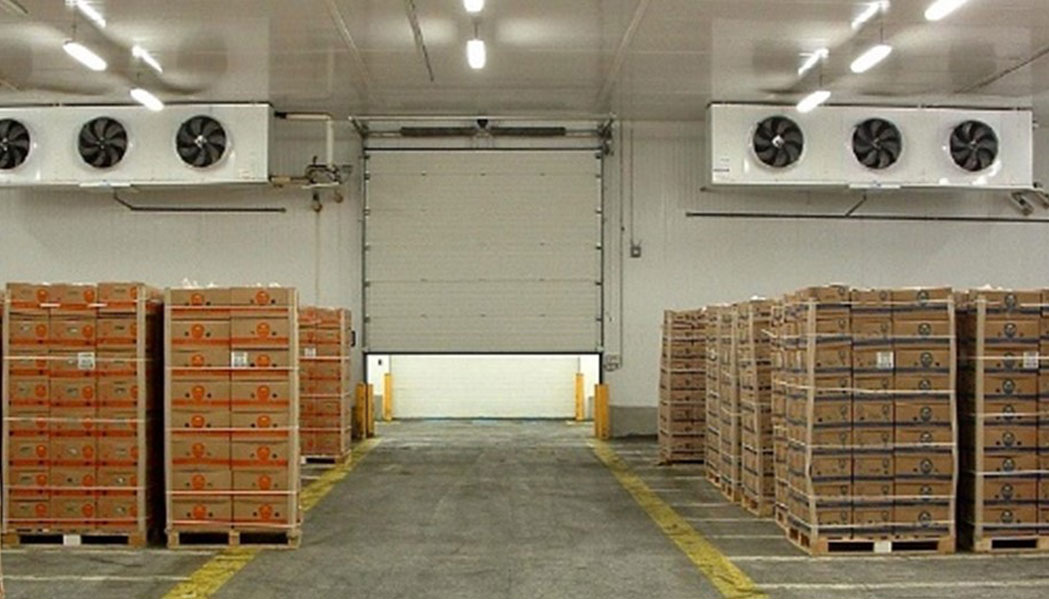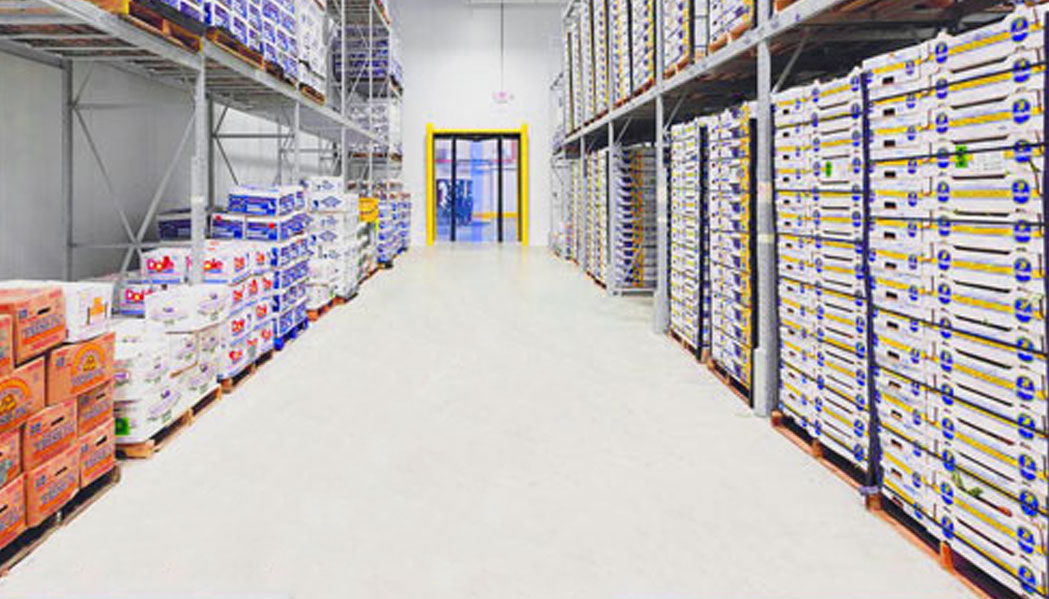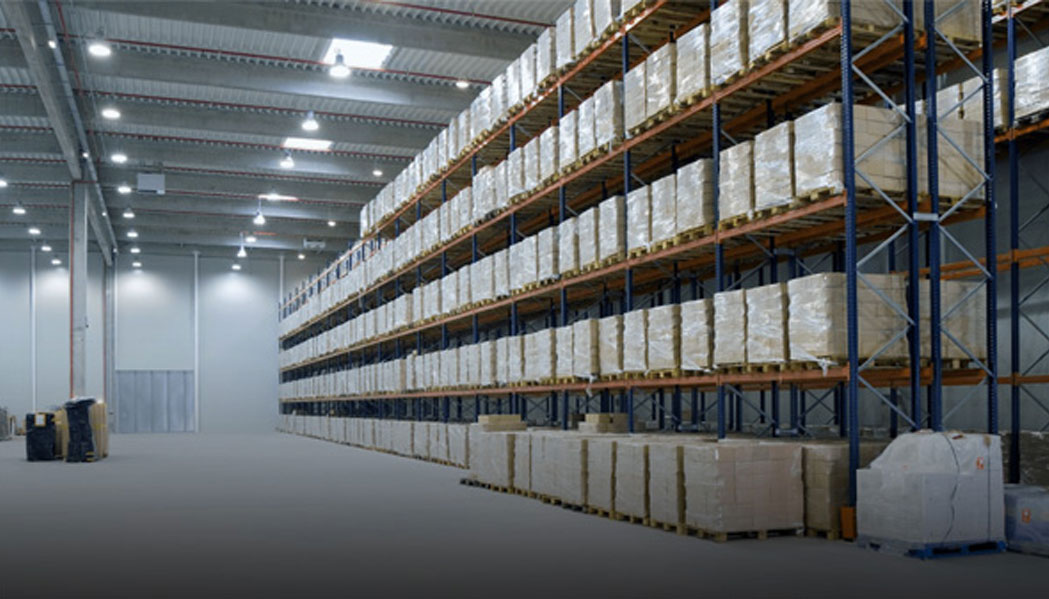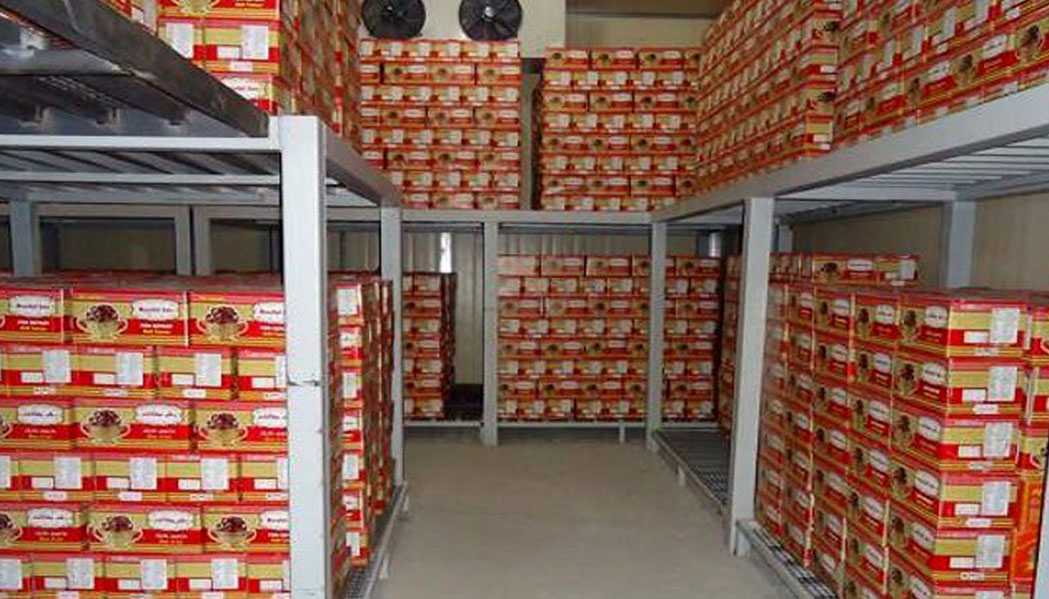Storage Conditions and Key Points for Date Palm Cold Storage
The storage of dates and other agricultural products in ideal conditions is essential to preserve their quality and extend their shelf life. Cold storage facilities play a vital role in ensuring the quality of dates from the palm grove to the market. In this article, we delve into a detailed examination of the storage conditions for dates in cold storage facilities and their impact on maintaining product quality.
Ideal Conditions for Date Palm Storage in Cold Storage
Temperature
For short-term storage (less than three months), a temperature range of 0 to 5 degrees Celsius is suitable, while for long-term storage, around 18 degrees Celsius is appropriate. The reasons can be examined from several scientific perspectives, including agricultural engineering, biology, microorganisms, and chemistry.
Agricultural Engineering
In agricultural engineering, regulating the appropriate temperature for date storage is crucial because temperature directly affects the rate of ripening and the production of ethylene by the fruit. The temperature range of 0 to 5 degrees Celsius, in particular, helps maintain a balance between slowing the ripening process and preventing harmful microbial and fungal activities. This temperature range controls or monitors the respiration process of dates, allowing them to ripen slowly and increase their shelf life without quickly spoiling. For details on the respiration process, refer to the article "Everything About the Respiration of Agricultural Products."
Biology and Microorganisms
Microorganisms are more active at higher temperatures and can grow and reproduce more quickly. Many fungal diseases that affect dates do not grow at lower temperatures. Storing dates at 0 to 5 degrees Celsius can help prevent these diseases. Microorganisms and fungi can alter the taste and quality of dates, causing unpleasant odors and color changes. Storing dates at lower temperatures helps preserve their taste and quality for a longer period.
Chemistry
From a chemical perspective, maintaining the storage temperature within the desirable range not only reduces the rate of chemical reactions but also prevents changes in color, taste, and texture, thus preserving the vitamins, minerals, and antioxidants.
Humidity
Relative humidity is a key factor in preserving the quality and nutritional value of dates in cold storage. High relative humidity prevents dates from drying out and losing moisture, and adequate humidity influences the taste, texture, and color of the product.
Botany and Plant Physiology
As a tropical fruit, dates grow in high-humidity environments and thus require high relative humidity to preserve their natural properties and prevent environmental stress. A relative humidity between 60 to 70 percent helps maintain water balance in date tissues and prevents them from drying out and cracking.
Microbiology
A suitable relative humidity reduces the activity of enzymes and biological processes. Due to high humidity and natural sugars, dates provide a suitable environment for the growth of microorganisms, including bacteria, fungi, and yeasts, which can affect the taste and quality of dates. Therefore, proper humidity helps prevent the growth of these microorganisms.
Food Engineering and Packaging
Proper packaging of dates in cold storage plays a crucial role in preserving their quality, taste, nutrients, and shelf life. Improper packaging can allow air, moisture, light, and dust to enter the package, leading to date spoilage. Observing the following points in date packaging in cold storage is important:
Packaging Durability: Packaging should be made of durable and resilient materials such as plastic, cardboard, or wood to withstand impact, pressure, and tearing.
Packaging Impermeability: Packaging should be impermeable to air, moisture, light, and dust to prevent these factors from entering the package and spoiling the dates.
Packaging Ventilation: Packaging should have small pores or holes for proper ventilation to prevent moisture buildup and mold growth.
Packaging Size: Packaging should be proportional to the volume of dates to minimize empty space inside and ensure dates are fully compressed.
Stackability of Packaging: Packaging should be designed to be easily stacked to optimize cold storage space usage.
Avoid placing dates next to strongly scented foods such as onions and garlic, as dates can absorb their odor.
Ventilation and Ethylene Control or Monitoring
Ethylene is a natural gas produced by fruits and vegetables, including dates. Ethylene can cause premature ripening, softening of the tissue, and a decrease in the quality and shelf life of dates. Proper ventilation and control or monitoring of ethylene in cold storage are essential for preserving the quality and shelf life of dates. Proper ventilation helps with air circulation in the cold storage and gas exchange, preventing an increase in humidity and ethylene accumulation.
Approaches to Proper Ventilation in Date Cold Storage
Ventilation and control or monitoring of ethylene are two vital factors in the storage of dates in cold storage facilities, which are considered crucial from the ventilation science and cold storage industry perspectives. Controlling or monitoring ethylene levels in the cold storage environment is essential to prevent premature ripening and extend the shelf life of dates.
Use of Air Conditioning Systems
Air conditioning systems with air circulation and humidity control in cold storage provide favorable conditions for date storage.
Installation of Ventilation Ducts
Ventilation ducts in cold storage facilities facilitate the exchange of air and prevent the accumulation of ethylene.
Monitoring of Ethylene Levels
Continuous monitoring of ethylene levels in cold storage facilities helps identify and address potential issues promptly.
Use of Ethylene Absorbers
Ethylene absorbers or scavengers are chemicals or materials that absorb or neutralize ethylene gas in the environment, preventing premature ripening and extending the shelf life of dates.
Proper ventilation and ethylene control or monitoring in cold storage facilities are essential for maintaining the quality, taste, texture, and shelf life of dates. Implementing these measures can help minimize losses due to spoilage and maximize profits for date producers and distributors.
Design and Technology of Modern Cold Storage for Date Preservation
Advanced Insulation Systems The use of innovative and effective insulation materials to prevent energy loss and maintain stable temperature conditions inside the cold storage is essential. These materials help reduce energy costs and ensure temperature stability.
Digital Control or Monitoring Systems The use of digital control or monitoring systems helps improve the management of internal conditions in the cold storage. These systems enable precise monitoring of temperature and humidity and allow for automatic adjustment of settings based on the requirements of the available products.
Tracking and Monitoring Systems RFID Systems: These systems store and automatically track information related to each package of dates, such as harvest date, date type, storage conditions, etc., using RFID tags.
Video Surveillance Systems These systems continuously monitor the status of the cold storage and alert operators in case of any issues.
Disinfection and Sanitization Systems UV-C Lamps: These lamps use UV-C radiation to eliminate microorganisms present in the cold storage environment, preventing date spoilage.
Use of Ozone Generators Ozone is a powerful disinfectant gas that can eliminate microorganisms present in the cold storage environment.
Advantages of Date Preservation in Cold Storage
1-Increased Shelf Life of Dates: Dates are a seasonal fruit, and their harvest occurs within a limited timeframe. Dates quickly lose their quality at ambient temperatures, with changes in taste, texture, and color. Storing dates in cold storage can preserve them for a longer period, maintaining their freshness and high quality. This allows you to use dates out of season and benefit from their health benefits.
2-Control or Monitoring of Date Ripening: Some types of dates ripen quickly at ambient temperatures and become soft. Storing dates in cold storage slows down the ripening process, allowing you to use dates at different stages of ripeness according to your preference. This helps better regulate supply and demand and reduces the pressure of immediate sales due to fear of spoilage.
3-Cost and Date Waste Reduction: Storing dates in cold storage can prevent waste and allow you to use dates for a longer period. This helps you save on costs.
Technical Specifications and Key Points of Date Cold Storage
Temperature and Humidity Control or Monitoring in Date Cold Storage
The main technical specifications of cold storage include advanced temperature and humidity control or monitoring systems. The desired temperature should be maintained between 0 to 5 degrees Celsius, and relative humidity should be between 60 to 70 percent to prevent premature ripening and spoilage.
Air Conditioning and Ethylene Control or Monitoring Systems in Date Cold
Storage To prevent the accumulation of ethylene, which accelerates the ripening process of dates, appropriate air conditioning systems should be used. Some cold storage facilities are equipped with ethylene absorption technologies that absorb excess gases and prevent their recirculation in the environment.
Safety and Hygiene of Date Cold Storage
Hygiene and safety measures in cold storage are of particular importance. Regular cleaning and disinfection, as well as ensuring food safety by preventing contamination and harmful substances from entering the cold storage, should be carefully managed.
Energy Efficiency of Date Cold Storage
The design of date cold storage should minimize energy consumption. The use of effective insulation and efficient air conditioning systems that reduce energy consumption are important aspects of modern cold storage design. Date preservation in equipped cold storage facilities, considering appropriate technical specifications, not only helps maintain product quality during transportation and in the target market but also leads to sustainable trade and profitability. Overall Review of Date Cold Storage Modern cold storage facilities with advanced technology and design tailored to the needs of agricultural products such as dates provide optimal preservation conditions for these products. The use of these technologies helps producers deliver high-quality products to the market and ultimately leads to increased profitability and cost reduction.
General Overview of Date
Cold Storage Modern cold storage facilities with advanced technology and designs tailored to the needs of agricultural products such as dates provide optimal preservation conditions for these products. The use of these technologies helps producers deliver high-quality products to the market and ultimately leads to increased profitability and cost reduction.





